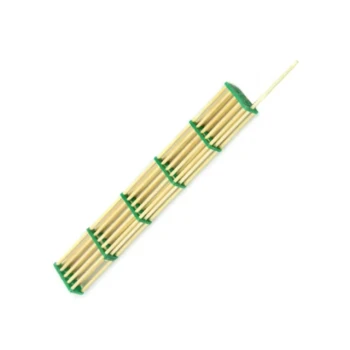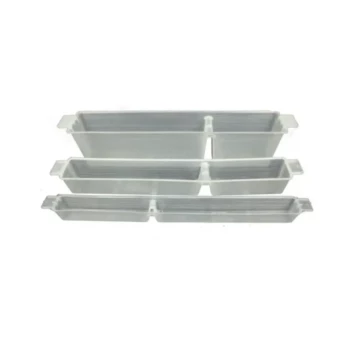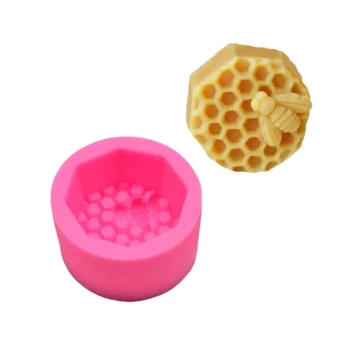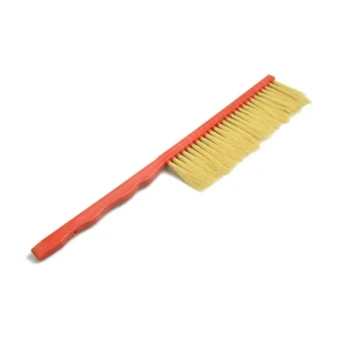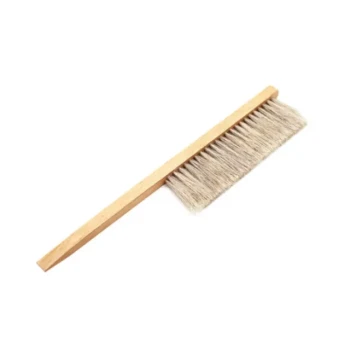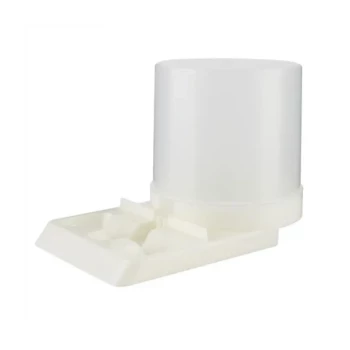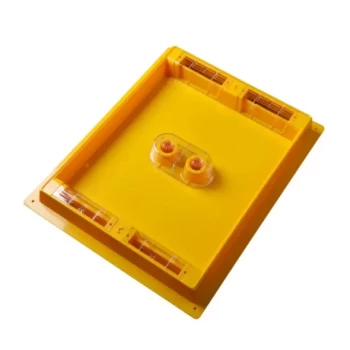At its core, oxalic acid is a contact miticide. It works by directly penetrating the tissues of the Varroa mite, primarily through its feet, and moving into its bloodstream. This contact disrupts the mite's cellular metabolism, leading to its death while having minimal adverse effects on the bees when applied correctly.
The true advantage of oxalic acid isn't just its effectiveness, but its specificity. It targets the Varroa mite directly without leaving harmful residues in honey or wax, a critical distinction from many synthetic treatments that risk hive contamination and mite resistance.
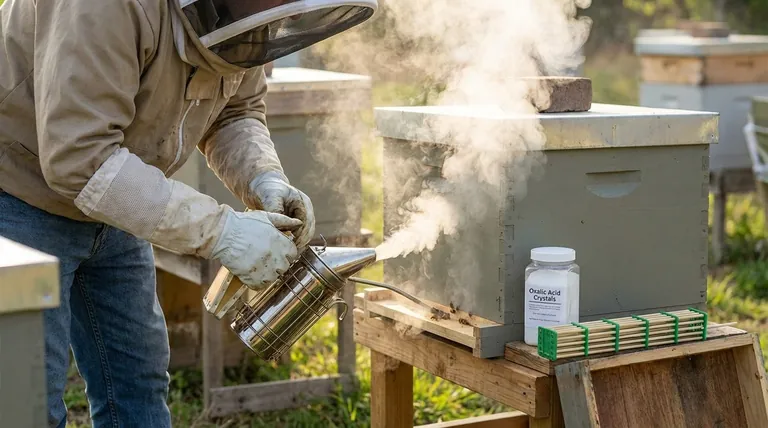
The Mechanism of Action: How Oxalic Acid Targets Mites
Direct Contact is Essential
Oxalic acid is not a systemic treatment that bees ingest. Its effectiveness relies entirely on direct physical contact with the Varroa mites that are riding on the bodies of adult bees (phoretic mites).
Penetrating the Mite's Defenses
The most widely accepted theory is that the acid is absorbed through the soft pads on the mite's feet (the empodium). Once absorbed, it quickly enters the mite's circulatory system.
Disrupting Cellular Metabolism
Inside the mite, oxalic acid acts as a poison. It fatally disrupts key metabolic processes at a cellular level, leading to a rapid kill of the parasite.
Key Advantages Over Synthetic Treatments
No Residue in Honey or Wax
Unlike synthetic miticides, oxalic acid is an organic acid that is naturally present in small amounts in honey. When used according to guidelines, it does not leave behind harmful chemical residues, ensuring the purity of your honey and wax.
No Documented Mite Resistance
One of the most significant challenges with synthetic treatments is that Varroa mites can develop resistance over time, rendering the chemicals ineffective. To date, there is no evidence that mites have developed a resistance to oxalic acid.
Low Impact on the Colony
When dosed and timed correctly, oxalic acid is very well tolerated by the honeybee colony. It provides a powerful tool for mite control with limited risk to the health of the adult bees.
Common Application Methods
The Dribble Method
This technique involves mixing oxalic acid dihydrate with a sugar syrup solution. The solution is then carefully dribbled directly onto the bees between the frames in the hive body.
The Vaporization Method
Also known as sublimation, this method uses a specialized heating tool to heat oxalic acid crystals. The crystals turn directly into a vapor that fills the hive, coating the bees and mites inside without needing to open the hive fully.
Understanding the Critical Trade-offs
Ineffective on Mites in Capped Brood
This is the single most important limitation of oxalic acid. Because it works by contact, it cannot kill mites reproducing within capped brood cells. Any mites sealed inside a cell with a developing bee pupa are completely protected from the treatment.
Timing is Everything
Due to its inability to penetrate brood cappings, oxalic acid is most effective during periods when the colony has little to no brood. This is why it is a popular treatment for late fall, early winter, or during an induced brood break.
Correct Dosage is Non-Negotiable
While safe when used properly, applying too high a concentration of oxalic acid or treating too frequently can harm the bees and even the queen. Always follow established, scientifically-backed application rates.
Making the Right Choice for Your Goal
- If your primary focus is avoiding contamination: Oxalic acid is a superior choice, as it leaves no harmful residues in your hive products.
- If your primary focus is maximum effectiveness: Apply oxalic acid only when the colony is broodless or has very little brood to ensure you are targeting the highest possible percentage of mites.
- If your primary focus is a long-term management plan: Use oxalic acid as a key part of a rotational Integrated Pest Management (IPM) strategy to avoid the mite resistance common with synthetic treatments.
Ultimately, understanding how oxalic acid works allows you to use it strategically as a highly effective and safe tool in your apiary's Varroa management plan.
Summary Table:
| Aspect | Oxalic Acid | Synthetic Treatments |
|---|---|---|
| Mode of Action | Contact miticide | Systemic or contact |
| Residue in Honey/Wax | No harmful residues | Risk of contamination |
| Mite Resistance | No documented resistance | Resistance can develop |
| Effectiveness on Brood Mites | Ineffective | Varies by product |
| Ideal Application Timing | Broodless periods | Varies by product |
Ready to implement a safer, residue-free Varroa control strategy?
At HONESTBEE, we supply commercial apiaries and beekeeping equipment distributors with the high-quality supplies needed for effective oxalic acid application, such as precise dosing tools and vaporizers. Our wholesale-focused operations ensure you get the reliable equipment you need to protect your investment and your honey's purity.
Let's discuss how we can support your IPM plan. Contact our team today for wholesale pricing and expert advice.
Visual Guide
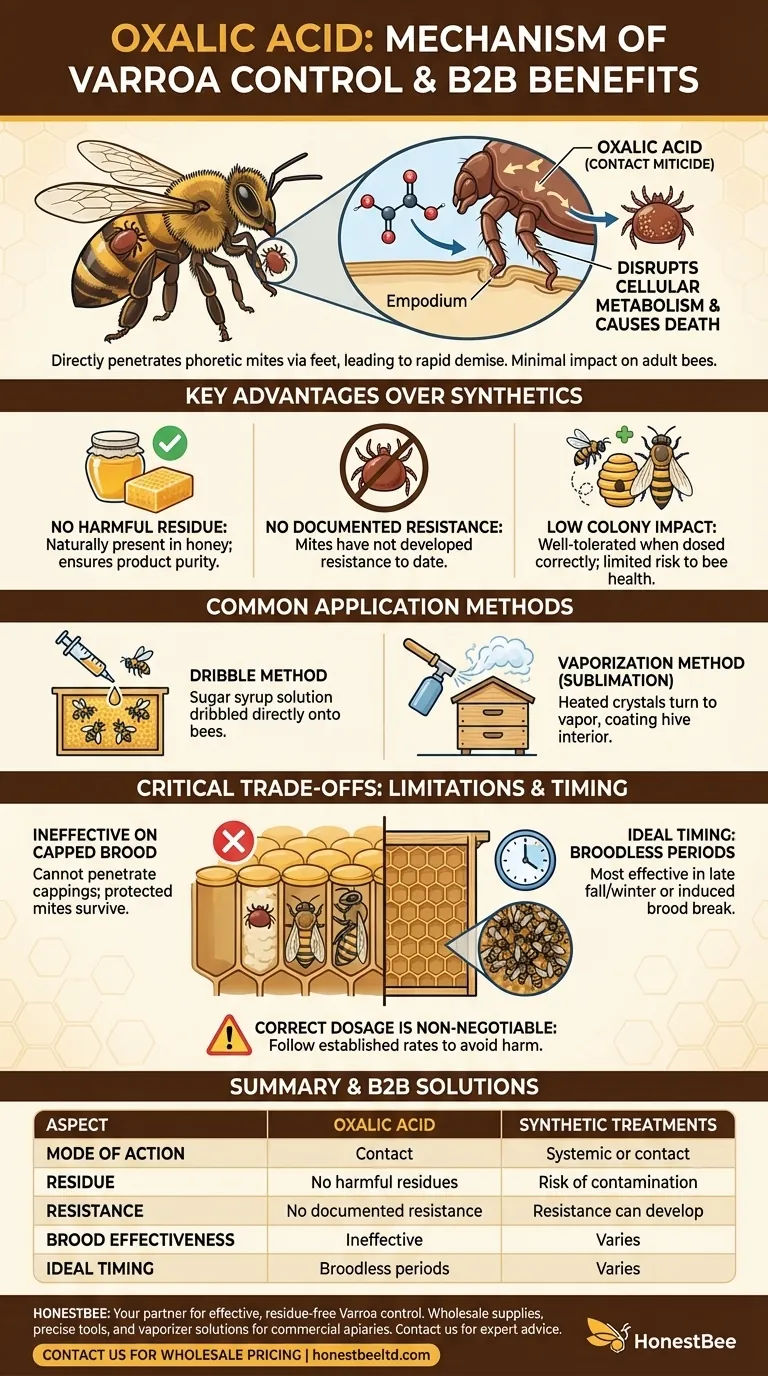
Related Products
- Professional Bamboo Queen Isolation Cage
- Langstroth Screen Bottom Board for Beekeeping Wholesale
- Professional Plastic Queen Excluder for Modern Beekeeping
- Metal Queen Bee Excluder for Beekeeping
- Professional Galvanized Hive Strap with Secure Locking Buckle for Beekeeping
People Also Ask
- What role do queen isolation cages play in the production of larvae for honey bee research? Achieve Precise Age Control
- How does the use of queen cages contribute to the effectiveness of honeybee treatments? Optimize Varroa Mite Eradication
- Why use specialized Queen Introduction Cages? Protect Your Investment and Ensure Successful Hive Succession
- What is the key function of a frame-type queen excluder in Varroa treatment? Master Biological Mite Containment
- What is sequestration, and how does it help bees reorient? A Safer Guide to Hive Relocation
